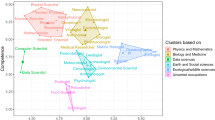Abstract
IN a communication printed in NATURE of January 25, p. 119, Prof. Polanyi takes issue with an earlier leading article1 which had urged the rejection of the view that “science is set apart from all other social interests as if it possessed a peculiar holiness”. A peculiar holiness, he maintained, is exactly what science does possess. The issue has the appearance of being a fundamental one, since it goes to the root of the whole relation between science and the social order, and some measure of agreement about the nature of this relationship is widely considered to be an urgent need. It may therefore be worth while to point out that this particular example of disagreement seems to be based on a purely verbal ambiguity. In the editorial, “holiness” meant, surely, “having an esoteric character”, whereas to Prof. Polanyi it clearly meant “having overwhelming ethical value”. I, for one, and there are certainly many like me, would not agree for a moment to deny the ethical value of the scientific method; but also do not feel quite confident against the accusation that it has in the main been applied to an unduly narrow range of phenomena. Have we too often exerted ourselves to take an unbiased view of something which is so recondite that there is no adequate reason why the ordinary man should have any view of it, biased or not?
This is a preview of subscription content, access via your institution
Access options
Subscribe to this journal
Receive 51 print issues and online access
$199.00 per year
only $3.90 per issue
Buy this article
- Purchase on SpringerLink
- Instant access to the full article PDF.
USD 39.95
Prices may be subject to local taxes which are calculated during checkout
Similar content being viewed by others
References
NATURE, 146, 815 (1940).
Author information
Authors and Affiliations
Rights and permissions
About this article
Cite this article
WADDINGTON, C. Cultural Significance of Science. Nature 147, 206 (1941). https://doi.org/10.1038/147206a0
Issue date:
DOI: https://doi.org/10.1038/147206a0



